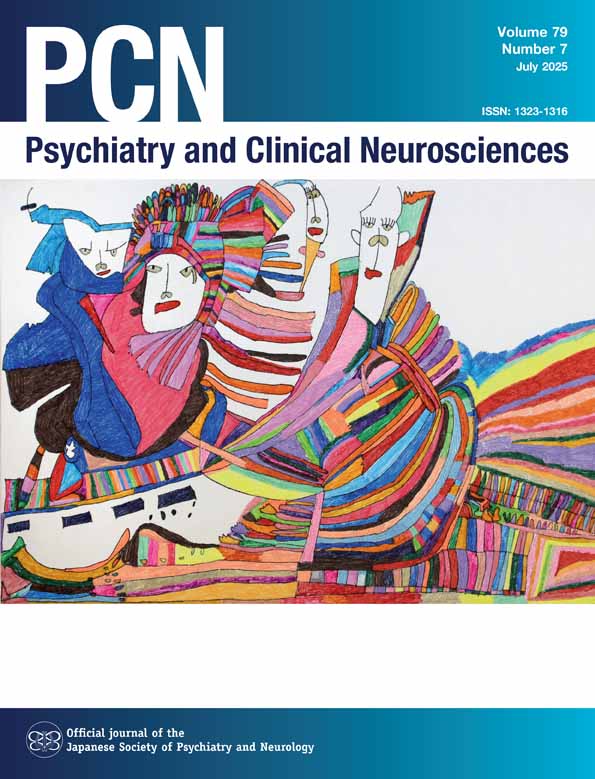Effects of donepezil (Aricept) on the rapid eye movement sleep of normal subjects
Abstract
Abstract Donepezil (Aricept) is a therapeutic drug for the treatment of Alzheimer’s disease (AD). However, there have been only two reports describing the effects of donepezil on sleep as assessed by nocturnal polysomnography (PSG). With this in mind, the effects of donepezil on the sleep of healthy subjects was evaluated using PSG. The results indicated that the percentage of rapid eye movement sleep to total sleep time was increased significantly by a single dose of 5 mg of donepezil when given to healthy subjects immediately before retiring to bed.
INTRODUCTION
Donepezil (Aricept) is a therapeutic drug for the treatment of Alzheimer’s disease (AD). Dysfunction of cholinergic neurones is attributed to cognitive impairment in AD.1 Donepezil works by activating cholinergic neurones by inhibiting acetylcholin-esterase (ACh-E).1 Animal studies have indicated that ACh-E inhibitors increase rapid eye movement (REM) sleep;2 however, these compounds also have peripheral side-effects, such as increased difficulty in urination and a dry mouth,3 hence the human study was not easy. Since the time donepezil was first used clinically in Europe and the USA, there have been only two reports describing its effects on sleep as evaluated by nocturnal polysomnography (PSG).4,5 With this in mind, we evaluated the effects of donepezil on the sleep of normal subjects using PSG.
MATERIALS AND METHOD
The study was performed on eight healthy male subjects. Age distribution was 28 ± 2 years (mean ± SD). The double-blind cross-over method was adopted using donepezil (5 mg) and a placebo. The experiments were separated by a time interval of 1 week. Each subject was instructed to sleep in the recording room for two consecutive nights, in which the first night was to allow for adaptation and the second night was the experiment night. Informed consent was obtained from all subjects prior to the experiment. The drug or placebo was given at 22.30 hours of the experiment night. Overnight PSG was recorded from 23.00 hours to when the subject woke up spontaneously the next morning or up to 08.00 hours if the subject did not wake up spontaneously. On the morning following the experiment night, subjects were asked various questions regarding sleepiness, dizziness, feeling of muscle weakness, digestive organ symptoms, and whether or not they had dreamed. Statistical analyses of the various sleep variables for each experiment was done by paired t-test at a level of significance of P < 0.05.
RESULTS
Table 1 summarizes the sleep variables when donepezil and placebo were given. Compared with the placebo, donepezil increased the percentage of REM sleep to the total sleep time (TST) significantly. Also, we found a tendency for sleep latency to be extended, although this was not statistically significant. There was no significant difference between REM sleep latency and other sleep parameters. No subject complained of sleepiness, dizziness or feeling of muscle weakness on the morning following the experiment night, but some subjects reported difficulty in falling a sleep and an increasing number dreams.
| Aricept | Placebo | |
|---|---|---|
| Time in bed (min) | 464 ± 15 | 453 ± 16 |
| Sleep period time | 419 ± 11 | 429 ± 13 |
| Total sleep time | 379 ± 20 | 398 ± 16 |
| Sleep latency | 23 ± 10 | 9 ± 3 |
| REM latency | 125 ± 15 | 98 ± 7 |
| Sleep efficiency index | 0.9 ± 0.04 | 0.93 ± 0.02 |
| Wake (min) | 39 ± 14 | 31 ± 8 |
| Stage 1 | 52 ± 7 | 57 ± 88 |
| Stage 2 | 213 ± 18 | 234 ± 9 |
| Stage 3 + 4 | 45 ± 10 | 53 ± 16 |
| REM sleep | 68 ± 7* | 54 ± 7 |
- * P < 0.05.
DISCUSSION
It has been reported in animal studies that ACh-E inhibitor increases the percentage of REM sleep to TST and that it shortens REM sleep latency.2 No change in REM sleep latency was demonstrated in the present study, but an increase in the percentage of REM sleep to TST was found. There have been many reports describing a decrease in REM sleep in patients with AD.5,6 Schredl et al. have reported that there is a significant positive correlation between an increase in REM sleep by donepezil and an improvement in cognitive function in healthy elderly subjects.4 Recently, Moraes et al. have reported that this compound increases REM sleep in patients with AD compared with that of placebo group patients with AD and that the amount of REM sleep reached the level of healthy elderly controls.5 In these previous studies, the drug was administered in the morning and continued for 1 week or more;4,5 whereas, in the present study, a significant increase in REM sleep was observed in healthy subjects even after only a single dose of 5 mg of donepezil was taken immediately before retiring to bed. This result indicates that the effect of donepezil is direct and immediate. It is unknown as to why REM sleep latency remained unchanged; however, it might be possible that it is due to donepezil causing the increased tendency for sleep latency to be extended.
Further studies are necessary to determine whether or not an increase in REM sleep may have a direct causal relationship with improving cognitive function in the treatment of patients with AD. Such studies should include experiments on other types of ACh-E inhibitors and choline stimulants.




